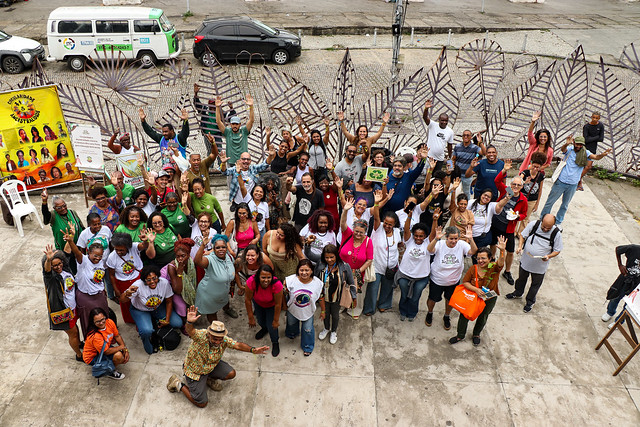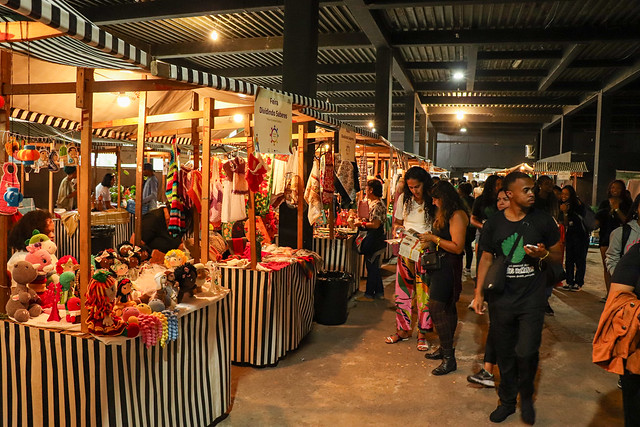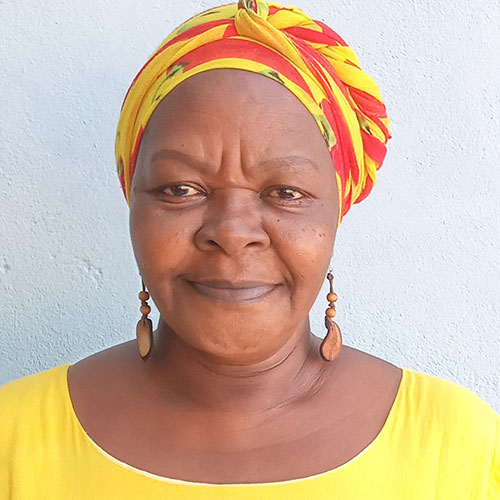Festival Favela Sustentável connects culture and community protagonism
The first festival of the Rede de Favela Sustentável, "Favela no Centro das Soluções (Favela at the Center of Solutions)”, brought together around 90 favela communities, hosting more than 100 activities in the areas of culture, environment, education and art, with Rio community leaders as protagonists


Created in 2017, the Rede Favela Sustentável (RFS) (Sustainable Favela Network) is made up of 700 community mobilizers from more than 300 favelas, as well as technical allies who work in an integrated way in the fight for climate justice.
The NGO recognizes the potential of these territories as models of sustainability and aims to promote climate justice, transforming favelas into examples of sustainable communities.
The project also seeks to foster qualities that already exist in communities in Rio de Janeiro, in order to boost, realize and amplify their potential. It operates based on the perspective of favelas as sources of solutions, including for human sustainability, based on the concept of Asset-Based Community Development.
This approach focuses on strengthening residents and the territory itself, respecting their sovereignty, and not based on an external vision or imposition.
The Rede Favela Sustentável works with the following axes:
- Climate justice
- Education and socio-environmental research
- Local culture and memory
- Food sovereignty
- Collective health
- Solidarity economy
- Right to sanitation
- Energy justice
- Air transportation
- sustainable housing
Provide visibility to combat prejudice
The management team of the Network isis maintained by the non-profit organization Catalytic Communities, ComCat, of which Theresa Williamson is founder and executive director. She spoke about the festival that took place with all the doors of Fundição Progresso open to the public and free of charge.
“This festival was a proposal that came up among the members in 2018 and 2019, but when we were arranging for it to happen in 2020, the pandemic struck. Only now have we decured funding again to make this dream come true, which was a collective dream.”
“In a way, the festival was a culmination of the desire to take this knowledge not only into the network, but also outside this powerful baggage, this quality and quantity of incredible projects that exist in the favelas and that are not seen”.
“This invisibility happens because, in our society, prejudice against the favela predominates; people are blind and don’t realize that, in fact, favela territories are powerful and also represent a solution for housing, for the neglect and inequality that residents face”.


“The favela emerged like this: as a solution. Yes, there are those who take advantage of the existing neglect, and crime is also present, but, in essence, it is a response that people give to the lack of housing and other issues in the absence of public power”.
Theresa adds that the “Festival de Favela Sustentável was a moment in which strengths and solutions were presented, publicized and shared, serving as inspiration for the favelas themselves, which was fundamental. The general public also had access and direct contact with the full power of that moment. We had more than 90 favelas participating.”
She says that it was a magical day, of great achievements, as ComCat has been building an understanding of this power for 24 years, and the network for seven years, strategically strengthening and supporting the initiatives that carry out the hard and essential work for the development of favelas, which are community-based organizations.
“It was a collective, remarkable and exciting achievement, in which we experienced a moment rich in exchanges and with very inspiring people”, concludes Theresa.
Favela highlighted: reception and representation
The RioOnWatch editor, Clau Guimarães, said it was exciting to see people involved in the festival’s activities. “The whole day gave me moments of enormous emotion. Every time I was able to move around a little and see the number of activities and people enjoying conversation circles, workshops, therapies and presentations, I felt an unprecedented joy and hope.”
“Children’s laughter, emotional testimonies, transformative stories, brilliant solutions and ideas: the favela showing the way — and there were so many possible, creative and sustainable paths. It was magical.”


For Vinicius Carvalho, 38 years old, resident of Favela da Rocinha and co-founder and manager of Coletivo Favela IN, the event was a symbol ofh representation. “Personally, it was a wonderful day, because I had the opportunity to share moments. I took my daughter, my father, my mother. I felt welcomed and very comfortable in the space, from beginning to end”.
“I felt among my equals and, best of all, it was all free. It was great to see all those artistic manifestations. There was even a Lava-Pés (Foot Wash). Anyway, I thought it was a wonderful event, with a very strong, family identity. These were people who were actually sharing”.
Did you like the project?
Follow the Rede de Favela Sustentável on Instagram.



